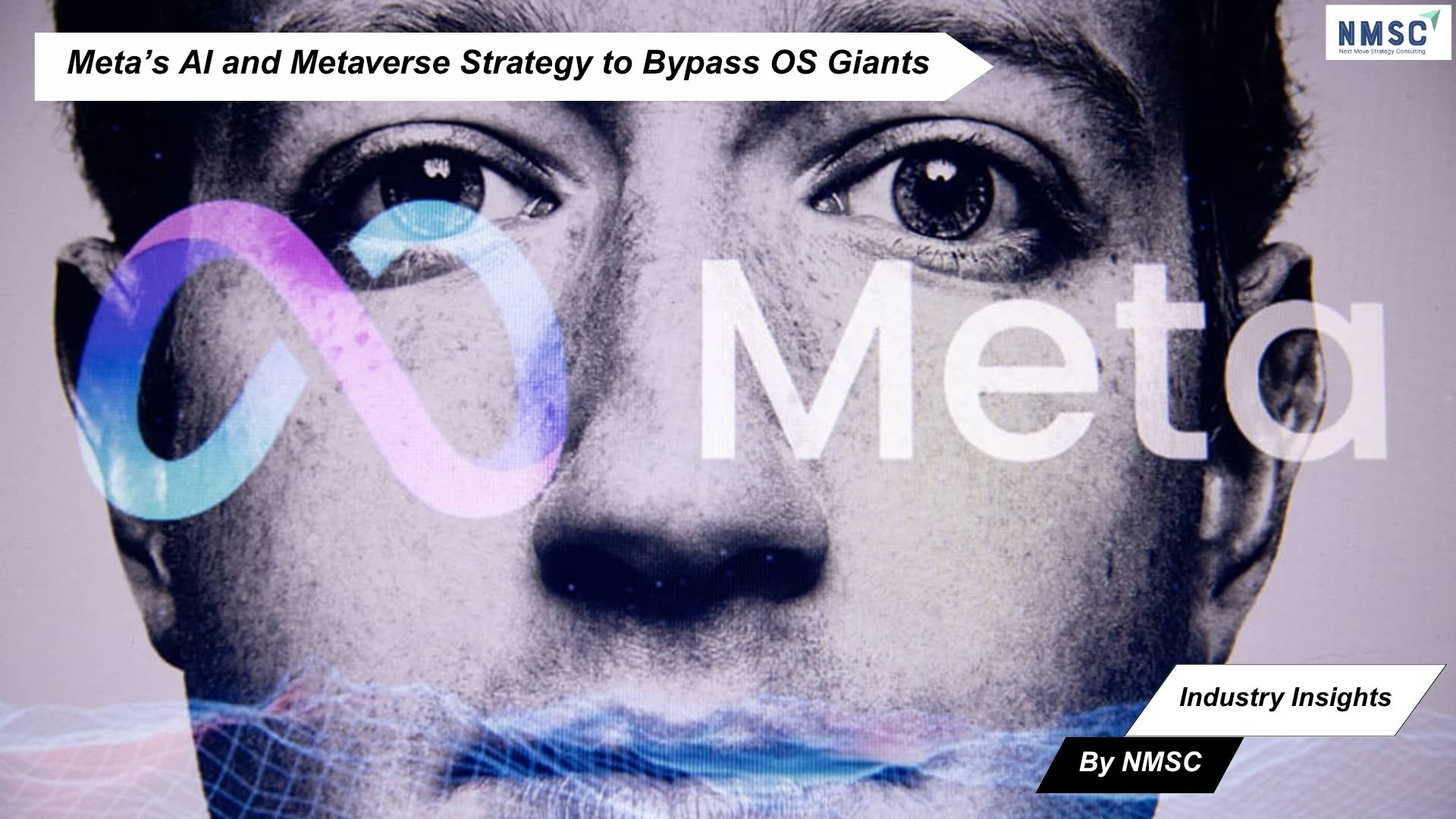Meta’s AI and Metaverse Strategy to Bypass OS Giants
Published: 2025-08-07

Industry Insights from Next Move Strategy Consulting
In its recent second-quarter earnings statement, Meta reported that the average number of daily active users across its apps reached 3.48 billion in June.
Meta Accelerates Shift Toward AI Leadership
Meta is actively repositioning itself as a leading AI company rather than simply a social media platform. The tech giant is investing billions of dollars into AI infrastructure, including data centers and custom chips, while offering substantial salaries to attract top AI talent. In June, CEO Mark Zuckerberg announced the launch of Meta Superintelligence Labs, a new division dedicated to driving the company’s AI advancements.
Until now, Meta's AI initiatives have primarily centered on enhancing ad targeting and increasing user engagement across platforms such as Facebook and Instagram. However, the company has recently taken a significant step toward direct consumer interaction with the launch of its own chatbot, Meta AI, which is now integrated into products like WhatsApp and Instagram.
Meta’s AI Ambitions Face Hurdles in an OS-Dominated Landscape
-
One of the key challenges Meta faces is distinguishing itself in a landscape dominated by established operating systems controlled by other major tech players.
-
Additionally, there’s ongoing debate over how users will engage with AI agents. With smartphones remaining the primary device for digital interaction, they are still viewed as the central access point for AI-powered tools.
-
Meta’s platforms—Facebook, Instagram, and WhatsApp—remain some of the most widely used apps globally. However, as users increasingly rely on AI agents integrated into their devices, operating system developers could gain a competitive edge.
-
Another common perspective is that as AI becomes more personalized, it will increasingly learn from users' behaviors on their devices, including how they interact with apps and overall usage patterns. This gives operating system developers a distinct advantage.
Meta’s Metaverse Vision: A Strategic Move to Bypass Traditional Operating Systems
Although Microsoft, Apple, and Google currently dominate the operating systems across consumer devices, Pleydell-Bouverie believes this long-standing status quo is poised for disruption.
Agentic or agential AI refers to the concept of chatbots evolving into more functional digital assistants, capable of performing tasks on behalf of users.
The concept has yet to gain significant traction, and Meta’s Reality Labs division continues to incur losses of billions of dollars each quarter. However, Quilter Cheviot’s Barringer views this as Meta’s broader effort to build its own operating system.
“This is part of Zuckerberg’s motivation behind developing the Metaverse,” Barringer explained. “It gives Meta a platform where its products are directly in front of users, rather than relying on being discovered through other systems.”
Source: CNBC
Prepared by: Next Move Strategy Consulting















Add Comment